Listeners:
Top listeners:
-
play_arrow
104.9FM Best rock music demo
-
play_arrow
Demo Radio Nr.1 For New Music And All The Hits!
-
play_arrow
Demo Radio Techno Top Music Radio
-
 play_arrow
play_arrow
Police Commissioner Launches Weapon and Riot Control Training for FCT Officers Democracy Radio
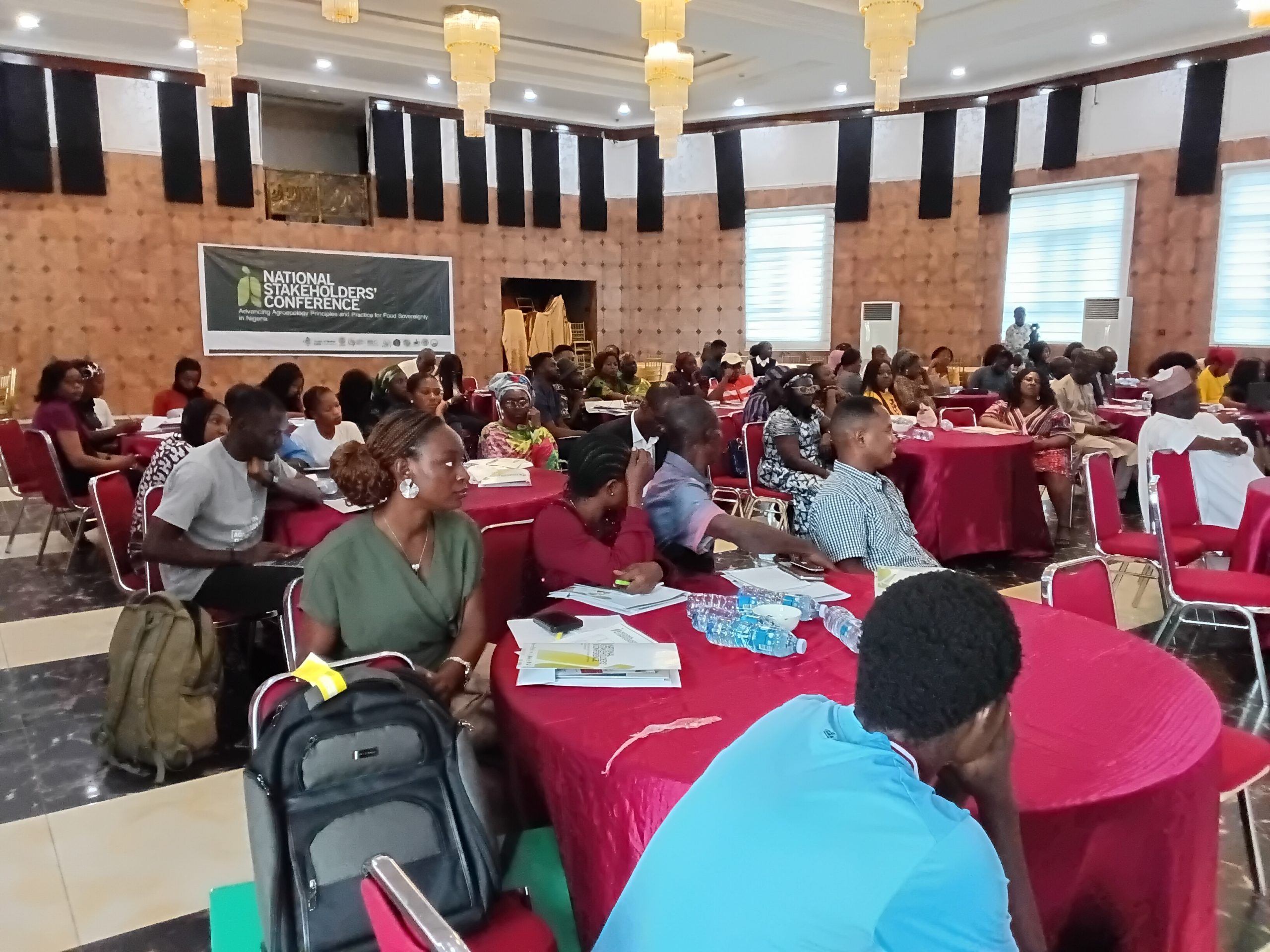
By Oluwakemi Kindness
The Federal Government has been urged to urgently establish a national agroecology policy framework as a sustainable solution to the country’s growing food insecurity and environmental challenges.
This call was made on Monday in Abuja during the National Stakeholders’ Conference on Advancing Agroecology Principles and Practice for Food Sovereignty, where experts expressed concerns about the long-term impacts of chemical-based farming and the marginalization of traditional agricultural practices.
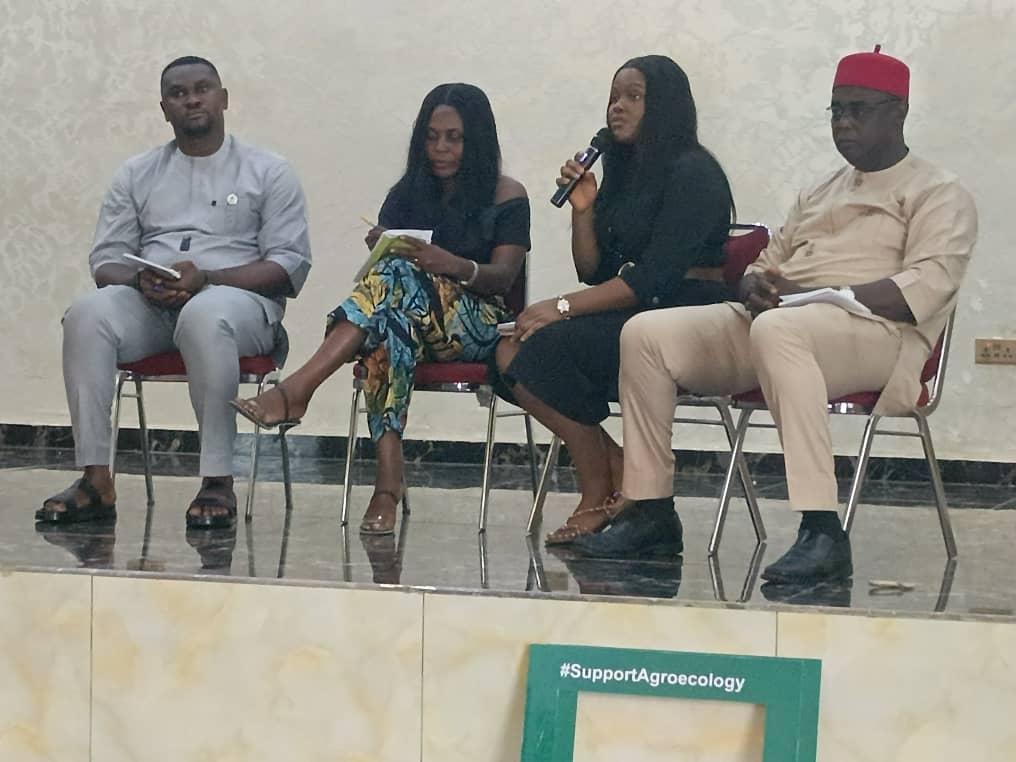
Speaking at the event, Dr. Ifeanyi Casmir, a leading advocate for agroecology and environmental health, noted that despite global progress towards climate-smart and sustainable agriculture, Nigeria lacks a formal policy on agroecology. He described this as a critical oversight, especially considering the country’s commitment to the Sustainable Development Goals (SDGs).
“Agroecology speaks directly to at least seven of the SDGs, including Zero Hunger and Responsible Consumption and Production,” Dr. Casmir stated. “But the corporate interests that dominate agribusiness are suppressing these conversations and undermining the role of smallholder farmers.”

He emphasized that the shift requires political will at multiple levels. “The executive must initiate policy direction, but to institutionalize and fund it, the National Assembly must be involved. There is nothing out of place for the Ministry of Agriculture to put forward a draft bill establishing a national agroecology framework,” he added.
Dr. Casmir also commended the Minister of State for Agriculture, Senator Sabi Abdullahi, for his openness to agroecology and called for stronger government support to reclaim Nigeria’s food systems.
“Our farmers have the knowledge,” he said. “What they need is institutional support to revive sustainable practices for the sake of our food, our environment, and our national dignity.”
Also speaking, Associate Professor, Ado Garba of the Department of Agricultural Extension and Rural Development, Federal University, Duste, Jigawa State, and National President of the Food Awareness Promotion Initiative in Nigeria, said the time has come for Nigerian farmers to reclaim control over what they grow, eat, and sell by embracing agroecology.
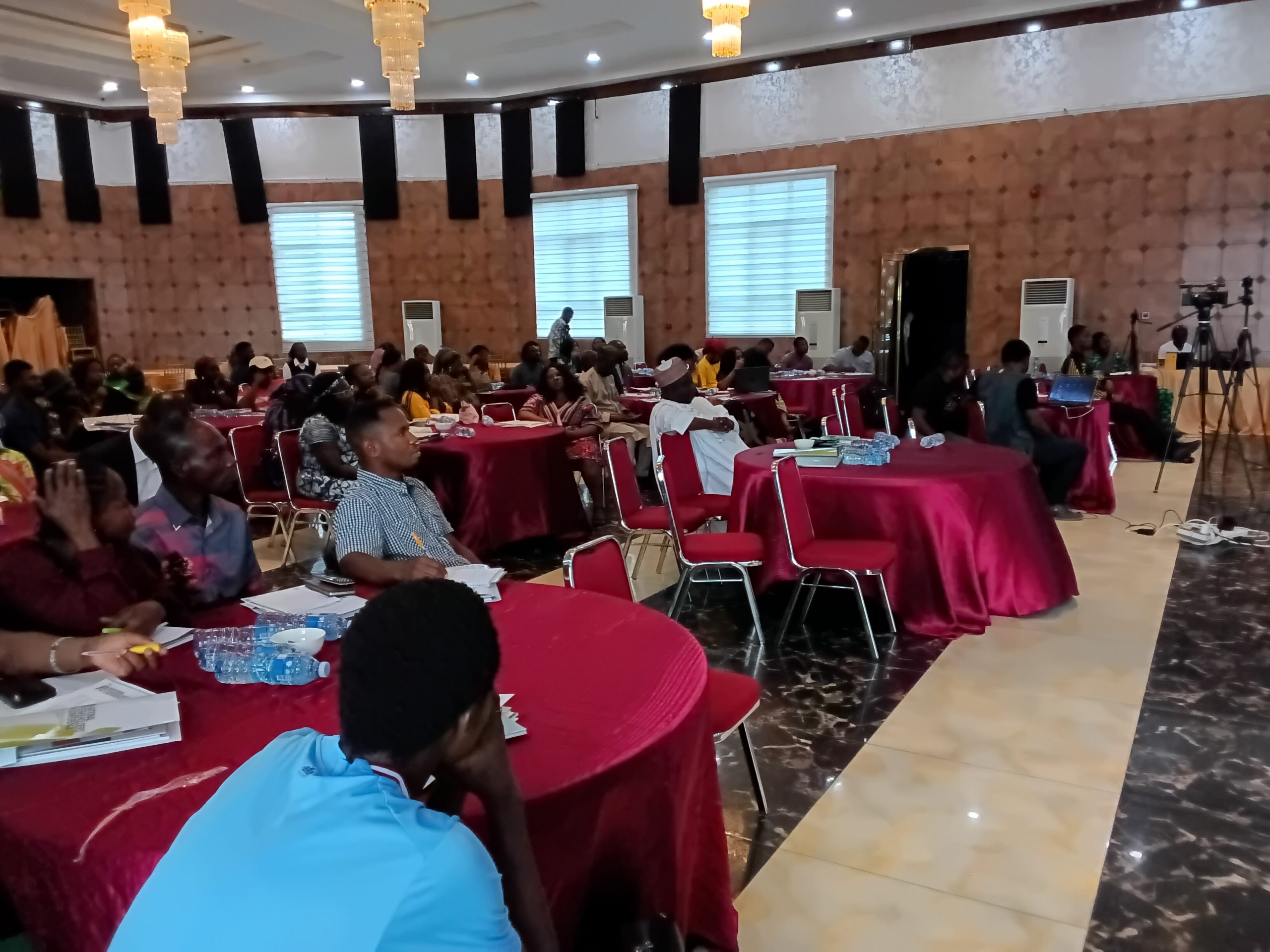
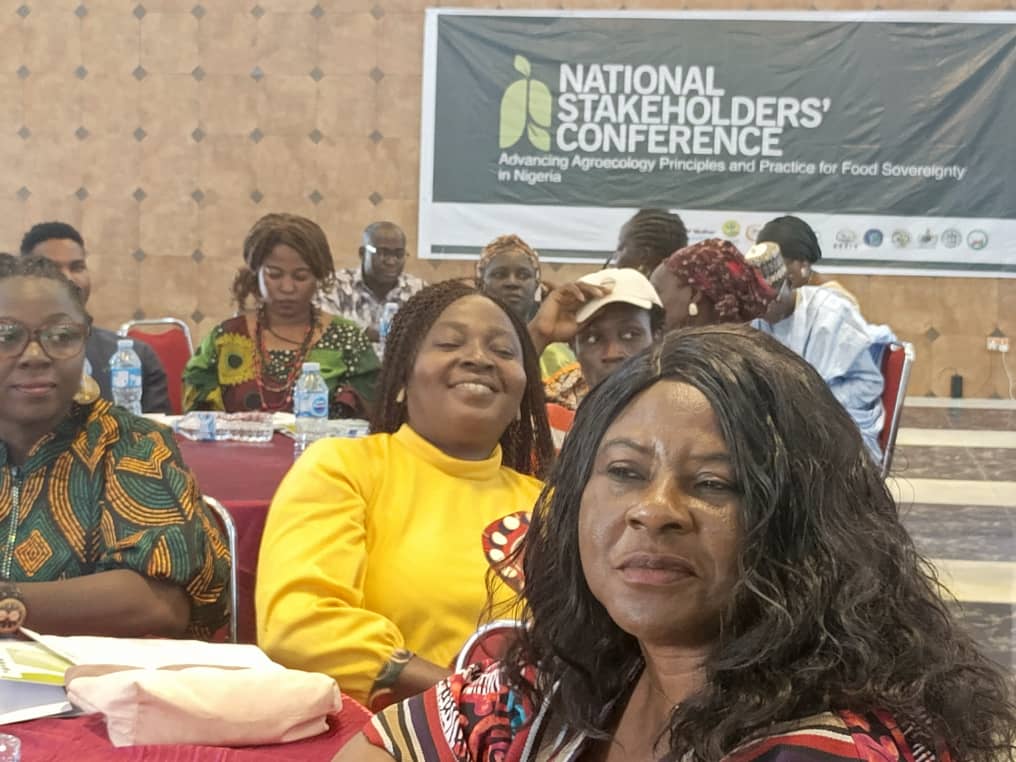
According to him, agroecology offers a healthier and more independent alternative to synthetic farming methods that have long dominated Nigeria’s agricultural landscape. “Agroecology allows us to control what we produce, not what foreign companies impose on our plates,” he said.
He warned against the increasing use of genetically modified organisms (GMOs) and chemical inputs, highlighting their health and environmental consequences. “We’ve moved from nutrition-focused farming to yield-at-all-costs. But more yield doesn’t mean better food. We are paying for it with our health and dependence on foreign agribusiness,” he warned.
Garba urged farmers across Nigeria to start practicing agroecology, even on a small scale from their own backyards. “You can plant onions, pepper, cabbage—right around your home. It’s healthier, and you’re no longer dependent,” he advised.
Delivering the keynote address, Professor Adeoluwa Olugbenga emphasized that agroecology is a strategic pathway to reclaim Nigeria’s food system, restore ecological balance, empower local communities, and ensure long-term food sovereignty and resilience.
“It is the core solution to the interconnected challenges of food insecurity and climate change. It builds ecological values, strengthens biodiversity, empowers farmers, and ensures food sovereignty,” he said.
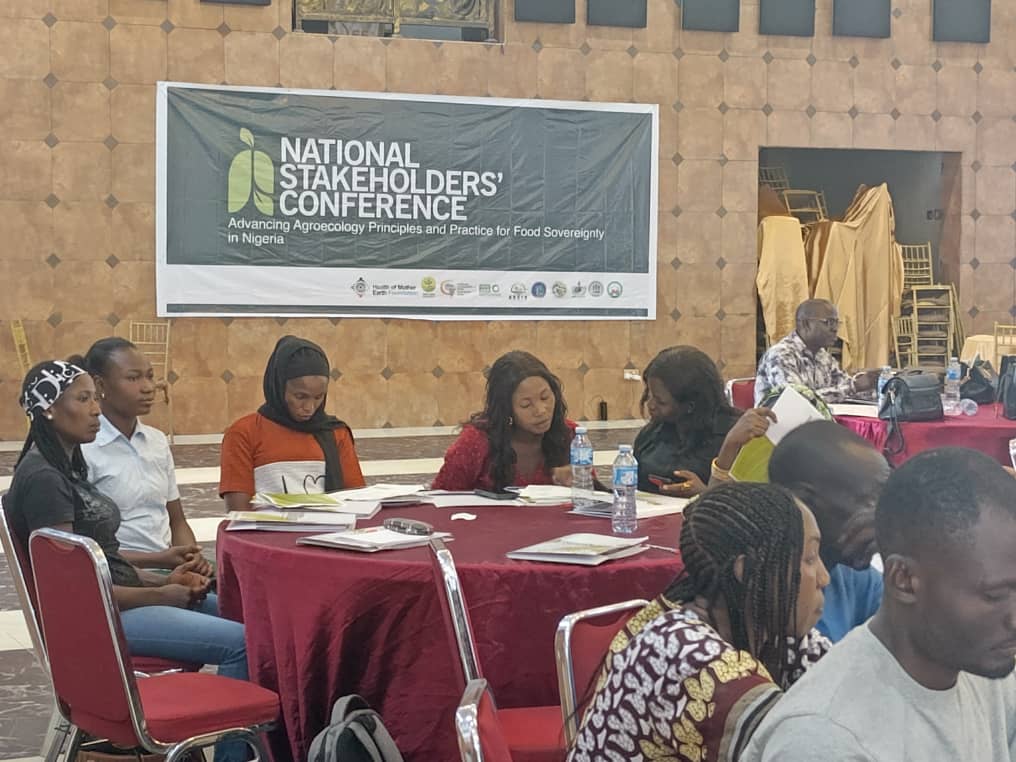
Prof. Olugbenga joined others in calling for a robust national policy framework to institutionalize agroecological practices, stressing the importance of localized, farmer-led research and inclusive dialogue among stakeholders. “We need to move agroecology from the margins to the center of national agricultural policy,” he said.
Earlier in his welcome address, Executive Director of Health of Mother Earth Foundation (HOMEF), Nnimmo Bassey, highlighted the critical difference between food security and food sovereignty, arguing that food availability alone is not sufficient if communities have no control over how their food is produced.
“Food security may mean having enough to eat, but if we do not decide how, what, and with what methods our food is grown, then we are still vulnerable,” he said. He noted that the current focus on yield and industrial-scale farming ignores important cultural, ecological, and health considerations.
Bassey stressed that true food sovereignty empowers communities to shape food systems based on their values, traditions, and environmental realities. “Agroecology is the path to sovereignty where farmers, not corporations, decide what goes in the soil, what seeds are used, and how the land is treated,” he added.
The conference brought together farmers, researchers, civil society organizations, and agroecology advocates from across the country. Together, they called for a shift from dependence on synthetic farming inputs toward farming systems that prioritize biodiversity, community empowerment, and environmental stewardship.
According to the participants, food should not be treated merely as a commodity, but as a tool of dignity, health, and national independence.
Written by: Democracy Radio
#Agroecology #DemocracyRadio #Food Security #Food Sovereignty #GMOs #HOMEF
Similar posts
NOA Warns Traders Against Hoarding, Price Manipulation During Ramadan, Lent
todayFebruary 21, 2026 2
Copyright Democracy Radio -2024


